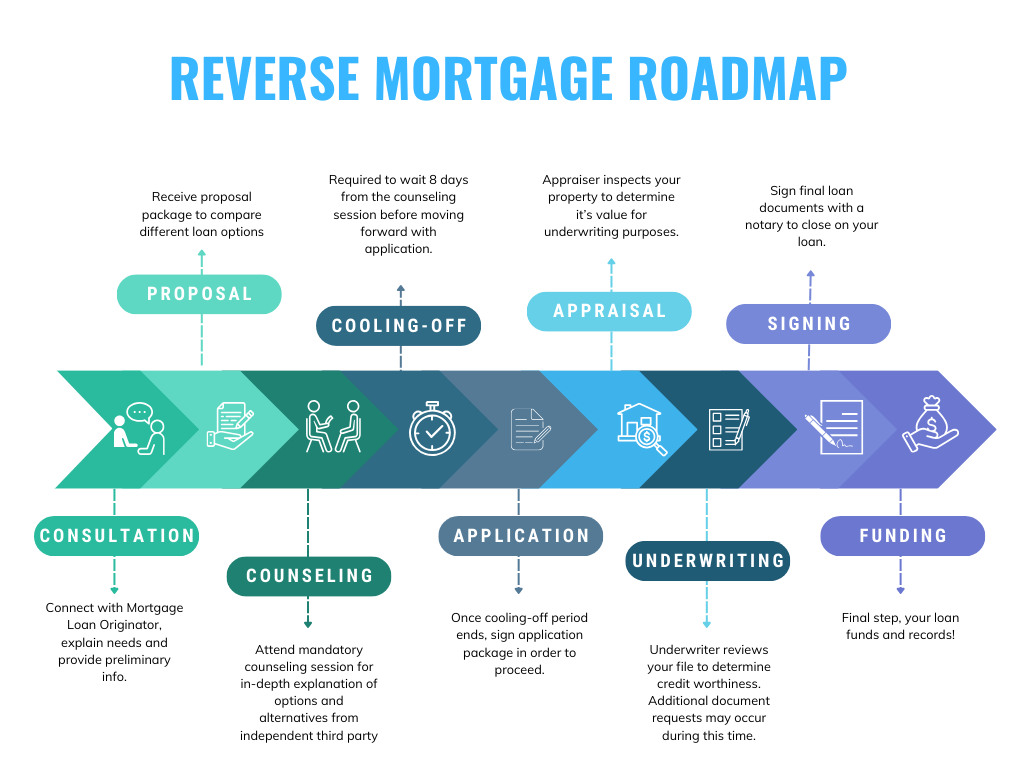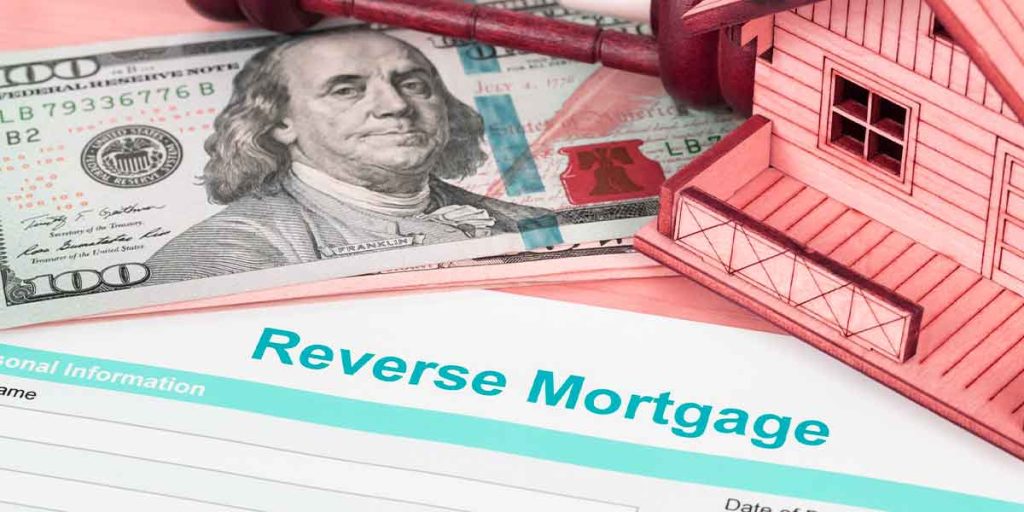Understand How to Purchase Reverse Mortgage for a Stress-Free Retirement
Understand How to Purchase Reverse Mortgage for a Stress-Free Retirement
Blog Article
Unlock Financial Flexibility: Your Overview to Getting a Reverse Home Loan
Comprehending the intricacies of reverse mortgages is important for property owners aged 62 and older seeking financial freedom. As you consider this alternative, it is critical to realize not just exactly how it works but also the effects it might have on your monetary future.
What Is a Reverse Home Loan?

The basic appeal of a reverse home loan lies in its prospective to boost financial versatility during retired life. Homeowners can utilize the funds for numerous purposes, including clinical expenditures, home improvements, or daily living expenses, hence providing a safeguard during a critical point of life.
It is important to recognize that while a reverse mortgage enables boosted cash money flow, it also reduces the equity in the home gradually. As interest builds up on the superior funding equilibrium, it is essential for potential borrowers to thoroughly consider their long-lasting monetary plans. Consulting with a financial consultant or a reverse home loan expert can supply useful understandings right into whether this choice lines up with an individual's financial goals and circumstances.
Eligibility Requirements
Recognizing the qualification needs for a reverse home mortgage is crucial for home owners considering this economic option. To qualify, applicants must go to the very least 62 years of ages, as this age requirement allows seniors to accessibility home equity without month-to-month home loan payments. Furthermore, the property owner should occupy the house as their main home, which can include single-family homes, particular condos, and produced homes meeting specific guidelines.
Equity in the home is another essential need; house owners typically need to have a substantial amount of equity, which can be identified via an evaluation. The amount of equity readily available will directly influence the reverse mortgage amount. Candidates have to demonstrate the capacity to maintain the home, consisting of covering residential or commercial property tax obligations, property owners insurance policy, and maintenance expenses, making certain the home continues to be in good condition.
In addition, prospective debtors have to undergo a monetary analysis to assess their earnings, credit rating, and total financial circumstance. This analysis helps lenders figure out the candidate's ability to meet continuous commitments connected to the residential or commercial property. Satisfying these needs is crucial for protecting a reverse home loan and making sure a smooth economic change.
Advantages of Reverse Home Mortgages
Numerous benefits make reverse mortgages an appealing option for seniors seeking to boost their economic adaptability. purchase reverse mortgage. Among the key benefits is the capacity to transform home equity right into money without the requirement for regular monthly home loan repayments. This function allows seniors to access funds for various demands, such as clinical costs, home enhancements, or click to find out more daily living expenses, consequently easing monetary stress and anxiety
Additionally, reverse home mortgages give a safeguard; senior citizens can remain to live in their homes for as lengthy as they fulfill the finance demands, fostering security throughout retirement. The proceeds from a reverse home mortgage can likewise be used to postpone Social Protection advantages, potentially causing greater payouts later on.
In addition, reverse home mortgages are non-recourse loans, suggesting that consumers will never ever owe even more than the home's value at the time of sale, shielding them and their beneficiaries from financial responsibility. The funds obtained from a reverse home loan are generally tax-free, including one more layer of financial alleviation. In general, these advantages position reverse home loans as a practical option for seniors looking for to boost their monetary scenario while maintaining their cherished home setting.

Costs and Costs Involved
When thinking about a reverse home mortgage, it's vital to know the different prices and charges that can impact the general economic image. Understanding these costs is crucial for making an educated decision regarding whether this monetary item is right for you.
One of the main expenses related to a reverse home mortgage is the source cost, which can differ by lending institution but usually varies from 0.5% to 2% of the home's appraised worth. In addition, homeowners need to prepare for closing prices, which might consist of title insurance policy, see this appraisal costs, and credit scores report charges, usually amounting to a number of thousand dollars.
Another substantial expenditure is home mortgage insurance policy premiums (MIP), which safeguard the lender against losses. This cost is generally 2% of the home's worth at closing, with a continuous annual premium of 0.5% of the staying finance equilibrium.
Finally, it is very important to consider recurring expenses, such as residential property taxes, homeowner's insurance policy, and maintenance, as the customer continues to be responsible for these expenditures. By meticulously examining these charges and costs, home owners can better assess the monetary implications of pursuing a reverse mortgage.
Steps to Start
Getting going with a reverse home loan entails several crucial steps that can assist simplify the process and ensure you make educated choices. First, examine your financial circumstance and establish if a reverse mortgage lines up with your lasting goals. This includes reviewing your home equity, current debts, and the requirement for added revenue.
Next, research different loan providers and their offerings. Seek trusted organizations with favorable testimonials, clear fee structures, and competitive rates of interest. It's necessary to contrast problems and terms to locate the most effective suitable for your needs.
After selecting a lender, you'll need to complete an in-depth application procedure, which typically requires documentation of income, assets, and residential or commercial property details. Engage in a counseling session with a HUD-approved therapist, that will certainly supply understandings into the ramifications and obligations of a reverse home loan.
Conclusion
To conclude, reverse mortgages offer a sensible alternative for senior citizens seeking to enhance their financial security throughout retirement. By converting home equity right into easily accessible funds, house owners aged 62 and older can deal with various financial demands without the pressure of monthly settlements. Recognizing the ins and outs of eligibility, advantages, and connected costs is essential for making educated decisions. Careful factor to consider and preparation can result in improved lifestyle, Clicking Here making certain that retirement years are both safe and secure and satisfying.
Understanding the details of reverse home loans is vital for homeowners aged 62 and older seeking financial flexibility.A reverse home loan is a financial item created primarily for home owners aged 62 and older, allowing them to transform a section of their home equity into money - purchase reverse mortgage. Consulting with an economic advisor or a reverse home loan expert can supply important insights right into whether this alternative aligns with an individual's financial objectives and conditions
Additionally, reverse home loans are non-recourse loans, implying that debtors will certainly never ever owe even more than the home's value at the time of sale, safeguarding them and their beneficiaries from monetary responsibility. On the whole, these advantages position reverse home loans as a practical solution for seniors seeking to improve their monetary circumstance while preserving their treasured home atmosphere.
Report this page